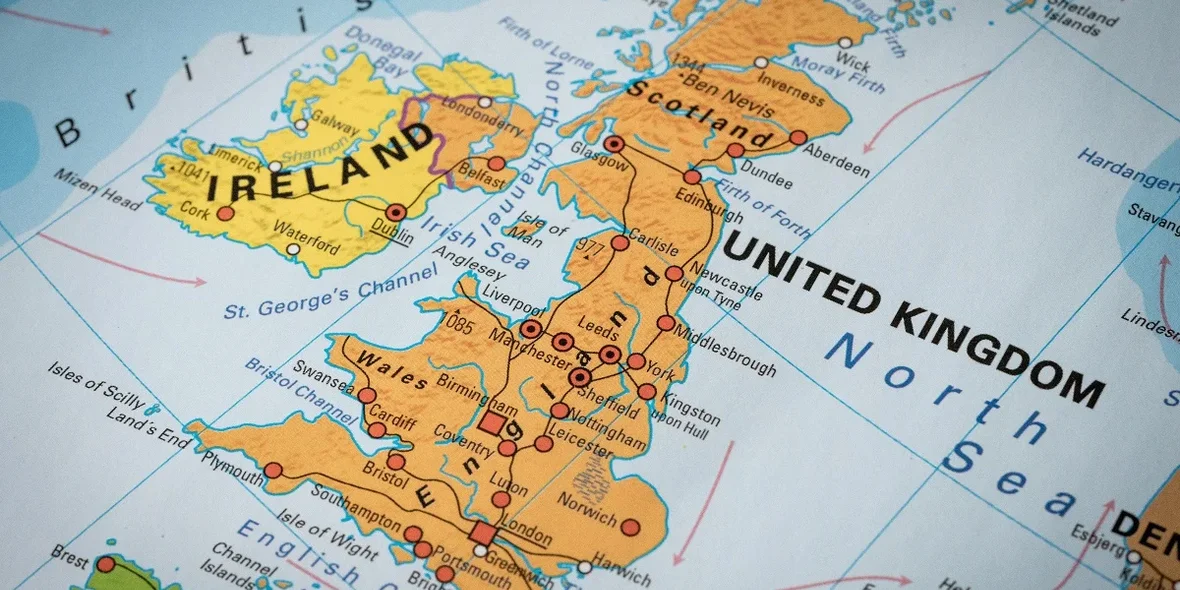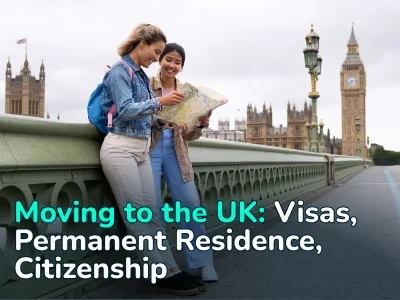
How Is England Different from Great Britain? How Not to Confuse These Different Names
Calling a Scotsman an Englishman, or referring to Ireland as part of Great Britain, is a sure way to provoke a puzzled look or even an outraged reaction. The terms “England,” “Great Britain,” and “the United Kingdom” are often used interchangeably, but this is not always accurate, as there are important nuances in their meanings.
The confusion between England, Great Britain, and simply Britain stems largely from England’s historical dominance. Its culture, language, and capital are often perceived as representative of the entire UK, which is not always the case.
In this article, we will examine the differences between these concepts by breaking down each term.
What is England?
England is the first thing that comes to mind when people hear “Great Britain,” but it is far from being the only part of the United Kingdom, even though it is often seen as the face of British culture. This perception is understandable: England forms the core of the UK and is home to its capital London.
England is one of the four historic nations that make up the United Kingdom, alongside Scotland, Wales, and Northern Ireland. It occupies the southeastern and central parts of the island of Great Britain and is the largest of the four countries in both area and population.
To the north, England borders Scotland; to the west, it borders Wales. However, unlike Scotland, Wales, and Northern Ireland, England does not have its own devolved parliament or government. All legislative and administrative matters concerning England are handled by the UK Parliament in Westminster, where MPs from all four nations sit.
This leads to a well-known political issue called the “West Lothian question”: Scottish, Welsh, and Northern Irish MPs can vote on laws affecting only England, whereas English MPs have no equivalent authority over matters devolved to the other nations.
England played a leading role in the formation of the British Empire, which by the 19th century encompassed a quarter of the world’s land area. This historical dominance is one of the reasons England is still often equated with the United Kingdom.
Today, England remains the economic and political center of the UK, accounting for 84% of its population and hosting the strongest economy. London plays a central role in this status due to its position as a global financial hub, attracting investment and talent from all over the world. Even the name of the language reinforces the association of “England” with the entire UK.
The misuse of the term “England” to refer to the whole UK is most strongly resented in Scotland and Northern Ireland. In both countries, questions of sovereignty are frequently discussed, and being labeled “English” can be considered offensive, though not always. Interestingly, such sensitivities are far less pronounced in the rest of Europe.
What is Great Britain?
The term Great Britain is frequently used in conversation, media, and even official documents. Great Britain is the name of the largest island in the British Isles archipelago, which includes England, Scotland, and Wales, but not Northern Ireland.
Following the conquest of Wales and the signing of the Act of Union with Scotland in 1707, the newly unified state was officially named the Kingdom of Great Britain. This designation remained in use until 1801, when the Act of Union with Ireland was signed, forming the United Kingdom of Great Britain and Ireland.
After Ireland’s secession in 1922, the term Great Britain once again came to refer specifically to the island within the British Isles that unites three nations, each with its own distinct cultural identity.
This term can be used to refer to the country, but not in Ireland. There, it is often met with strong opposition, especially among Catholics and Irish nationalists.
What is the United Kingdom?
The United Kingdom of Great Britain and Northern Ireland (commonly referred to as the United Kingdom or UK) is not a geographic region like Great Britain, nor a single nation like England, but rather a sovereign state that unites England, Scotland, Wales, and Northern Ireland.
The United Kingdom occupies the majority of the British Isles archipelago, including the island of Great Britain, the northeastern part of the island of Ireland, and numerous smaller islands such as the Shetlands, Orkneys, and Hebrides.
The UK is a unitary state with a parliamentary monarchy, where the king or queen serves as the formal head of state not only for England, but for all the constituent countries and territories within the union. However, actual political power resides in the UK Parliament, which includes representatives from all four nations.
The term United Kingdom is not only the official name of the state but also the most politically neutral term when speaking with the English, Scots, and Welsh. While the Irish may still object to its use, especially in nationalist circles, their reaction tends to be far less intense than when the terms “England” or “Great Britain” are used to refer to the whole country.
In continental Europe, United Kingdom is widely recognized as the official term and is primarily used in legal and administrative contexts. Interestingly, even at the Olympic Games, the national team competes under the name Team GB (Great Britain) rather than Team UK.
Additional Terms Related to the United Kingdom
The term British Isles is often heard, but it refers strictly to a geographical entity: the archipelago that includes the islands of Great Britain and Ireland, as well as over 6000 smaller islands.
There is also the concept of the Crown Dependencies, which refers to three self-governing territories: the Isle of Man, Jersey, and Guernsey (the latter two encompass smaller islands within the Bailiwicks of Jersey and Guernsey). These territories are not part of the United Kingdom, but the UK is responsible for their defense and international representation.
During the time of the British Empire, many territories were conquered that are now classified as British Overseas Territories. These consist of 14 territories under the sovereignty of the British Crown, though they are not considered part of the UK in an administrative sense. Examples include Gibraltar, the Falkland Islands, Bermuda, the Cayman Islands, the British Virgin Islands, and others.
Lastly, there is the Commonwealth of Nations, a voluntary association of 56 independent states, most of which were once part of the British Empire. It includes major countries such as Canada, Australia, India, South Africa, and Nigeria. All members acknowledge the symbolic leadership of the British monarch.
Summary
England is one of the four historic nations that make up the United Kingdom. Great Britain refers to the island in the British Isles that includes England, Scotland, and Wales. The United Kingdom is the name of the sovereign state that consists of these three countries plus Northern Ireland.
In official contexts and when speaking with residents of the UK, the most appropriate term to use is the United Kingdom or simply the UK. Great Britain may also be used, but it is best avoided when speaking with Irish people. Otherwise, particularly in discussions involving the national identities of Scots, Welsh, or Irish, using the wrong term can be perceived as insensitive or even offensive.
In informal settings and outside the UK, all of these terms may be used, but with care and an awareness of their nuances.
Author
I write informative articles about real estate, investments, job opportunities, taxes, etc.






















